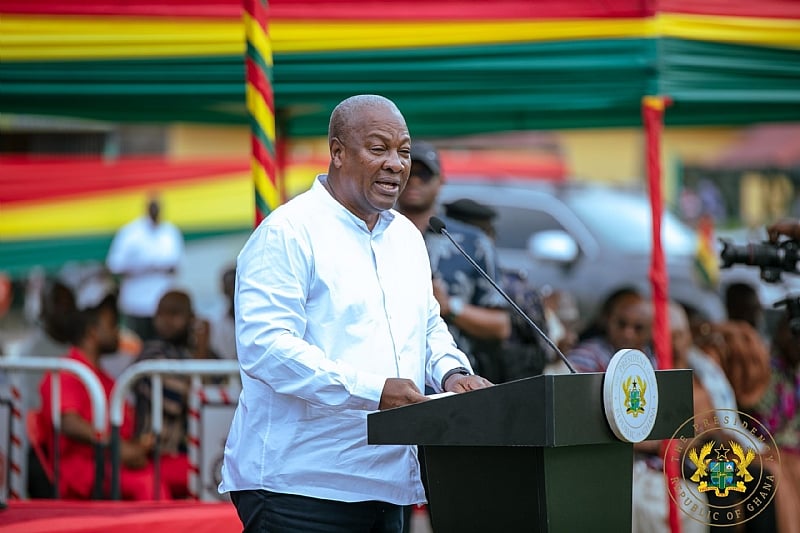Ghana’s President, John Dramani Mahama, has declared an impending ban on the importation and production of styrofoam food containers within the country. This decisive move forms a key component of a broader national strategy to tackle the escalating issue of plastic pollution and champion environmental sustainability. Announced during the 2025 World Environment Day celebrations, the ban signals a significant shift in food packaging practices, urging manufacturers and importers to transition towards more eco-friendly alternatives like paper or aluminum foil. While the policy acknowledges the potential impact on businesses currently reliant on the cost-effective nature of styrofoam, the President emphasized the paramount importance of addressing the severe environmental consequences associated with its widespread use. This initiative aligns with the growing global movement to combat plastic pollution and its detrimental effects on ecosystems and human health.
The President’s address underscored the urgent need for action, highlighting the pervasive nature of plastic pollution in Ghana, from clogged waterways and littered beaches to contaminated farmland and choked urban streams. He cited alarming projections indicating that without significant intervention, plastic waste in the ocean could surpass the fish population by 2050. The ban on styrofoam, a particularly harmful non-biodegradable material, responds to longstanding advocacy by environmental groups concerned about its threat to human health, marine life, and drainage systems. The government’s commitment to tackling this issue reflects a growing recognition of the interconnectedness between environmental health and human well-being.
Beyond the styrofoam ban, President Mahama outlined a series of national policies designed to comprehensively address Ghana’s plastic problem. The National Plastics Management Policy, for instance, introduces the principle of Extended Producer Responsibility, holding producers accountable for the entire lifecycle of their plastic products, including waste management. Furthermore, a revised Solid Waste Management Strategy aims to achieve a substantial 60% reduction in plastic waste sent to landfills by 2030. These initiatives demonstrate a proactive approach to waste management, shifting from a linear “take-make-dispose” model to a more circular approach that prioritizes reduction, reuse, and recycling.
Complementing these national policies are local initiatives aimed at fostering practical solutions and promoting community engagement. Pilot waste separation schemes, featuring color-coded bins for improved recycling rates, are already underway in cities like Tamale and Takoradi. These local efforts demonstrate a commitment to translating national policies into tangible action on the ground, empowering communities to actively participate in the transition towards more sustainable waste management practices. The President also highlighted the burgeoning entrepreneurial spirit in Ghana, with businesses innovatively converting used plastics into valuable resources like building materials, textiles, and fuel briquettes. This underscores the potential for a circular economy to not only mitigate environmental harm but also generate economic opportunities.
The ban on styrofoam follows another recent government directive aimed at phasing out wooden school desks in favor of more sustainable alternatives made from recycled plastic or metal. This measure serves a dual purpose: reducing deforestation and promoting the utilization of recycled materials. It signifies a broader commitment to integrating environmental considerations into various sectors, demonstrating that sustainability can be incorporated into everyday practices and infrastructure. By adopting these alternative materials for school desks, the government is setting an example of resource efficiency and promoting a circular economy model.
In addition to policy reforms and infrastructure development, President Mahama emphasized the importance of cultivating environmental consciousness among young people. The launch of the “One Tree Per Child” initiative embodies this commitment, encouraging students to actively participate in environmental stewardship. By providing each student with a seedling to plant and nurture, the program aims to instill a sense of responsibility and foster a deeper connection between youth and the natural environment. This initiative seeks to not only increase tree cover but also cultivate a generation of environmentally aware citizens. President Mahama concluded his address with a call to action, urging all Ghanaians to embrace sustainable practices, from reducing plastic consumption and refusing single-use plastics to sorting waste at home and planting trees. This collective effort, he emphasized, is essential for achieving a cleaner, greener Ghana.


